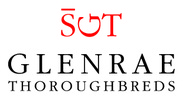High-quality horse agistment and spelling comprise carefully formulated feeding programmes, stabling and rugging, as well as medical care should it be required. It is the equivalent of giving your racehorse spa treatment to rejuvenate them and restore their spirits.
The word “agistment” is derived from the Old English word “giste” or “gite”, which literally translates to “lying place”. The word was commonly used as a term to simply describe the pasturing of livestock on someone else’s land for a fee - usually the king’s land. Over time, it became more associated with the notion of caregiving - particularly as it refers to thoroughbred horses.
Although all of the usual caregiving services are listed in typical agistment contracts, one aspect of horse agistment that cannot be quantified is the personal touch.
Consider child daycare, which involves more than just feeding the child and keeping it occupied. Daycare also requires someone who truly cares about children to interact with them constantly and ensure that their development needs are seen to. Horse care should be no different.
Why Does Talking To Your Horse Matter?
Horses in the wild are susceptible to becoming prey. Their primary defence is their speed, but there is safety in numbers. As a result, horses are naturally social animals and depend on one another’s presence and sense of community to feel safe and secure.
This is true even for horses that have never been threatened by a predator in the wild and are being given five-star treatment in an agistment and spelling facility such as ours at Glenrae Thoroughbreds. In the absence of a true herd, the horse should get that security from a caregiver who talks to it regularly.
Aside from not feeling secure, horses that seldom get spoken to outside of commands tend to become bored and destructive. Moreover, such horses learn to assume that a human approaching them means work, which will lead to them being difficult and obstinate.
How To Talk To Your Horse
Just like with a child, regular talking sessions will develop a horse’s ability to understand and respond. Because horses are social animals, they are highly attuned and responsive to our emotional states. We can establish trust and understanding by not only our body language but also the tone of voice we use when speaking to them.
It is instinctive for most of us to speak to animals the way we would to a small child. This is called pet-directed speech (PDS) and can be highly effective.
Studies have shown that PDS - characterised by a high-pitched voice and the repetition of words - elicits a far more positive response from horses than speaking to them in a regular adult tone of voice.
Therefore talking to horses is also a key part of their training and should never be neglected by an agistment facility.
For horse agistment services that go above and beyond to make sure your horse is truly cared for, contact us now!
Although all of the usual caregiving services are listed in typical agistment contracts, one aspect of horse agistment that cannot be quantified is the personal touch.
Consider child daycare, which involves more than just feeding the child and keeping it occupied. Daycare also requires someone who truly cares about children to interact with them constantly and ensure that their development needs are seen to. Horse care should be no different.
Why Does Talking To Your Horse Matter?
Horses in the wild are susceptible to becoming prey. Their primary defence is their speed, but there is safety in numbers. As a result, horses are naturally social animals and depend on one another’s presence and sense of community to feel safe and secure.
This is true even for horses that have never been threatened by a predator in the wild and are being given five-star treatment in an agistment and spelling facility such as ours at Glenrae Thoroughbreds. In the absence of a true herd, the horse should get that security from a caregiver who talks to it regularly.
Aside from not feeling secure, horses that seldom get spoken to outside of commands tend to become bored and destructive. Moreover, such horses learn to assume that a human approaching them means work, which will lead to them being difficult and obstinate.
How To Talk To Your Horse
Just like with a child, regular talking sessions will develop a horse’s ability to understand and respond. Because horses are social animals, they are highly attuned and responsive to our emotional states. We can establish trust and understanding by not only our body language but also the tone of voice we use when speaking to them.
It is instinctive for most of us to speak to animals the way we would to a small child. This is called pet-directed speech (PDS) and can be highly effective.
Studies have shown that PDS - characterised by a high-pitched voice and the repetition of words - elicits a far more positive response from horses than speaking to them in a regular adult tone of voice.
Therefore talking to horses is also a key part of their training and should never be neglected by an agistment facility.
For horse agistment services that go above and beyond to make sure your horse is truly cared for, contact us now!

 RSS Feed
RSS Feed